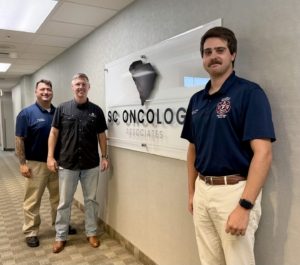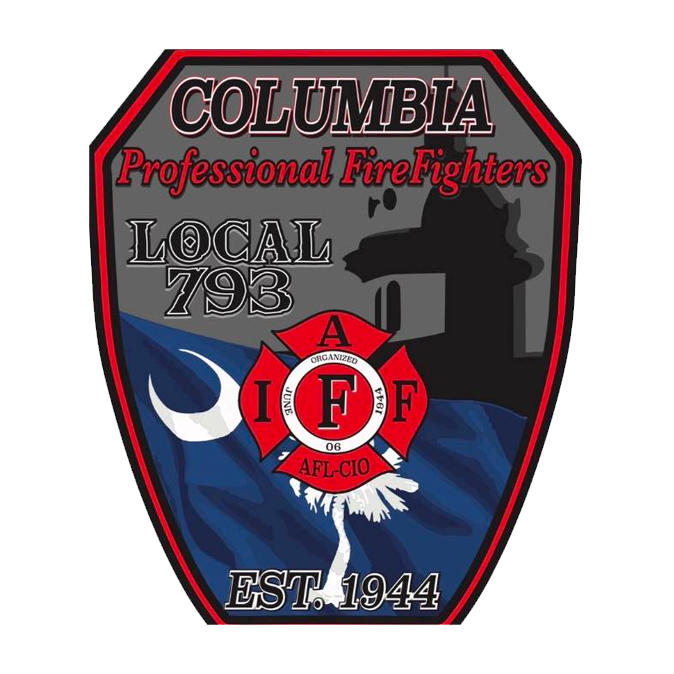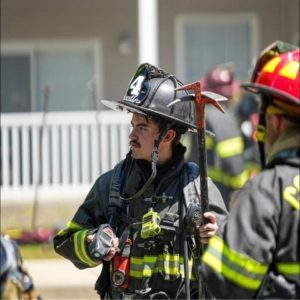The Columbia Professional Firefighters Local 793 and the Columbia Fire Department are proud to announce a new life-saving partnership with South Carolina Oncology Associates (SCOA) to provide free, comprehensive cancer screenings to firefighters at the Columbia Fire Department.
“In medical oncology we realize the importance of medical history and age appropriate cancer screening,” said Joe Collins, MD, Medical Oncologist. “This first responder program offers simple, free, and quick access to appropriate screening for some of our most deserving population. It’s been my pleasure meeting these folks that make sacrifices for us every day. The least we can do is make sure that they are healthy.”
 Firefighters are routinely exposed to a variety of carcinogens like soot, combustion byproducts, chemical residues, and hazardous building materials, which place them at elevated risk for many forms of cancer. The American Cancer Society reports that firefighters face a substantially greater risk of dying from cancers such as kidney and skin cancer compared with the general public. According to the International Association of Fire Fighters, occupational cancer is now the leading cause of line-of-duty death in the fire service. In 2023, 72 percent of IAFF member line-of-duty deaths were attributed to cancer. From 2002 to 2019, cancer accounted for approximately 66 percent of career firefighter line-of-duty fatalities.
Firefighters are routinely exposed to a variety of carcinogens like soot, combustion byproducts, chemical residues, and hazardous building materials, which place them at elevated risk for many forms of cancer. The American Cancer Society reports that firefighters face a substantially greater risk of dying from cancers such as kidney and skin cancer compared with the general public. According to the International Association of Fire Fighters, occupational cancer is now the leading cause of line-of-duty death in the fire service. In 2023, 72 percent of IAFF member line-of-duty deaths were attributed to cancer. From 2002 to 2019, cancer accounted for approximately 66 percent of career firefighter line-of-duty fatalities.
“We are honored to partner with the incredible team at SC Oncology Associates to bring this life-saving initiative to our firefighters,” said Local 793 Union President Josh Moskaitis. “Early cancer detection is critical to ensuring that our members have every tool necessary to protect themselves from the harmful carcinogens we face daily.”
SCOA is widely recognized as one of the southeastern U.S.’s leaders in cancer care and has served the Columbia area for more than 40 years. Its comprehensive services include medical, radiation, and gynecologic oncology, advanced diagnostics, infusion therapy, and ancillary support services. As a private practice, they can offer more affordable treatments compared to hospitals.
“When we were first asked to consider doing the cancer screenings for the firefighters, it was a no brainer,” said Wade Bonner, Chief Operating Officer of SCOA. “Our doctors said yes immediately. Not only did they say yes but they wanted to do it for free and expand it to also include law enforcement and EMS in Richland, Lexington, and Kershaw counties. Firefighters, law enforcement, and EMS personnel sacrifice a lot to serve our communities and often times don’t receive the thanks they deserve. This was something we could do to show them we appreciate them.”
Under this program:
- Screenings will be offered at no cost to participating firefighters.
- Participants will be asked to provide their insurance information. This is in case follow-up care is needed.
- The initial clinical contact will be with Dr. Robert (Joe) Collins III, MD, MPH, unless otherwise directed by SCOA.
- Diagnostic services in SCOA’s Sumter office are not part of this offering; only the Columbia facility will provide the screenings.
Local 793 stands united in gratitude to SCOA for making this offering possible. “The Columbia Professional Firefighters Local 793 is deeply grateful for the opportunity to partner with an organization that not only leads the way in cancer screenings and treatment, but also exemplifies compassionate patient care; one of the core values that Local 793 proudly stands for,” Moskaitis added.
We encourage all firefighters in Richland and Lexington counties to take advantage of this opportunity. Early detection saves lives.

